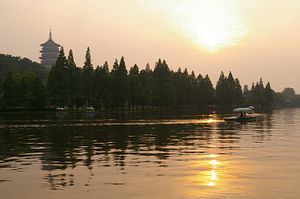There is little doubt that Hangzhou city this weekend will be a very nice place to visit. After more than a year’s hard work in preparation, Hangzhou will welcome world leaders for a G20 gathering to talk about pressing global issues, including global imbalances, climate change, the refugee crisis, and sovereignty. China, as the host of the G20, will seek to demonstrate its global leadership at a time of global uncertainties.
First on the agenda this year will be the question of how to achieve sustainable global growth. Interestingly, as globalization comes under attack from across the world, China has been the biggest beneficiary of the trend over the last three decades. The unfortunate fact is that, this year, unequal distribution of globalization’s benefits has cause political upheavals in Europe and the United States, prompting far right forces to rise up politically. China certainly will not be the white knight to reserve the declining popularity of globalization, but it still enjoys a moderately high level of growth despite its own domestic economic problems. Thus, China’s President Xi Jinping has proposed a new idea of an “inclusive world economy,” spurring the pursuit of more equality among world economies, regardless of rich or poor country status.
Whether or not this new slogan will resonate with other G20 members is a different matter. The fact that it is China now calling for new ideas and concepts of world economy is notable. Remember the “Washington Consensus” back in the 1980s? While ideas like the market economy and privatization remain strong forces in global economy, China’s past experiences and successes have challenged these simple ideas and concepts. Analysts are still debating whether there is such a thing as the “China model,” but maybe that question is no longer relevant. The important thing is that China has succeeded with whatever methods its leaders have used in the past 30 years, and now China is willing to share its own wisdom and lessons with other developed and developing countries.
This is where global governance comes in. China has not hesitated to show its ambition to reform the global governance system, a system that China deems unfit for today’s changed world. Of course, as the second largest economy in the world, China should have a say in meaningful global governance structures. But it is important to keep in mind that China would need the help from the U.S., the EU, and other significant economies like Japan and Canada to conduct meaningful reforms of global governance.
To be sure, other issues like regional security might pop up at the G20 as well, depending on how other players view their importance. This will also be a test of China’s sometimes-uneasy relationship with the West, particularly in the last few years. It is fine for China to have global ambitions. After all, it is time for Beijing to make real contributions to the world after being helped by others for so long. But China should be careful not to overly project an image of global dominance, pushing around other smaller countries. Being a global leader means respect for others and being respected by others at the same time.
Judging by China’s recent more benign actions in the South China Sea and other areas, we have confidence that China will seek to become a responsible global leader. With that in mind, we look forward to a successful Hangzhou G20 with concrete reforms and policies.

































